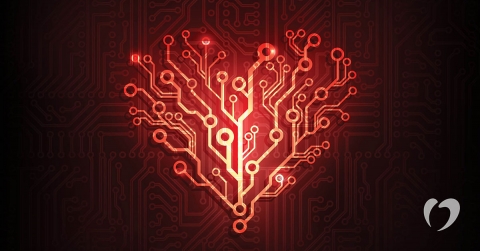Your Heart’s Electrical System

Your heart is the most important muscle in your body, and like every other muscle, it runs on electrical impulses. Those impulses tell it when and how to beat and control the pace of your heartbeat. And when those impulses get out of sync, problems start to occur.
How your heart’s electrical system works
Your heart has a well-defined circuit that makes it work, and it starts at the right atrium (upper chamber) of the heart. A small bundle of cells there called the sinoatrial or sinus node acts as a spark plug. It fires the electrical impulses that travel to the rest of your cardiac system.
When the SA node fires, it sends a signal to the atrium to contract. The electrical signal spreads from there through the rest of the heart like the ripples when you drop something in a pool of water.
The next spot the electrical signals hit is the atrioventricular node, where they slow down briefly before passing into the bundle of His (also called the Purkinje fibers as they split into the left and right chambers of the heart). From here they pump the lower chambers of the heart.
At rest the heart beats at about 60 beats per minute for an average person. Because of the way the electrical signal travels through the heart, it reaches the atria before the ventricles, causing the heart to pump in a way that pushes blood through the atria to the ventricles and back out into the body.
Any interruption of the electrical signal can cause problems with the heart’s normal function.
Electrical problems in the heart
If your heart is having problems with electrical signals, it usually takes the form of an arrythmia. Atrial fibrillation, atrial flutter, sick sinus syndrome, sinus tachycardia, ventricular tachycardia and fibrillation, heart block, long QT syndrome and other heart rhythm problems all stem from electrical problems in the heart.
There are various treatment methods for all of these depending on the type and severity of the problem. The Heart Rhythm Institute at Oklahoma Heart Hospital specializes in treating heart problems caused by irregular rhythms or electrical signals in the heart. If you suspect you have an issue with the electrical system or your heart, contact us today for an appointment.




